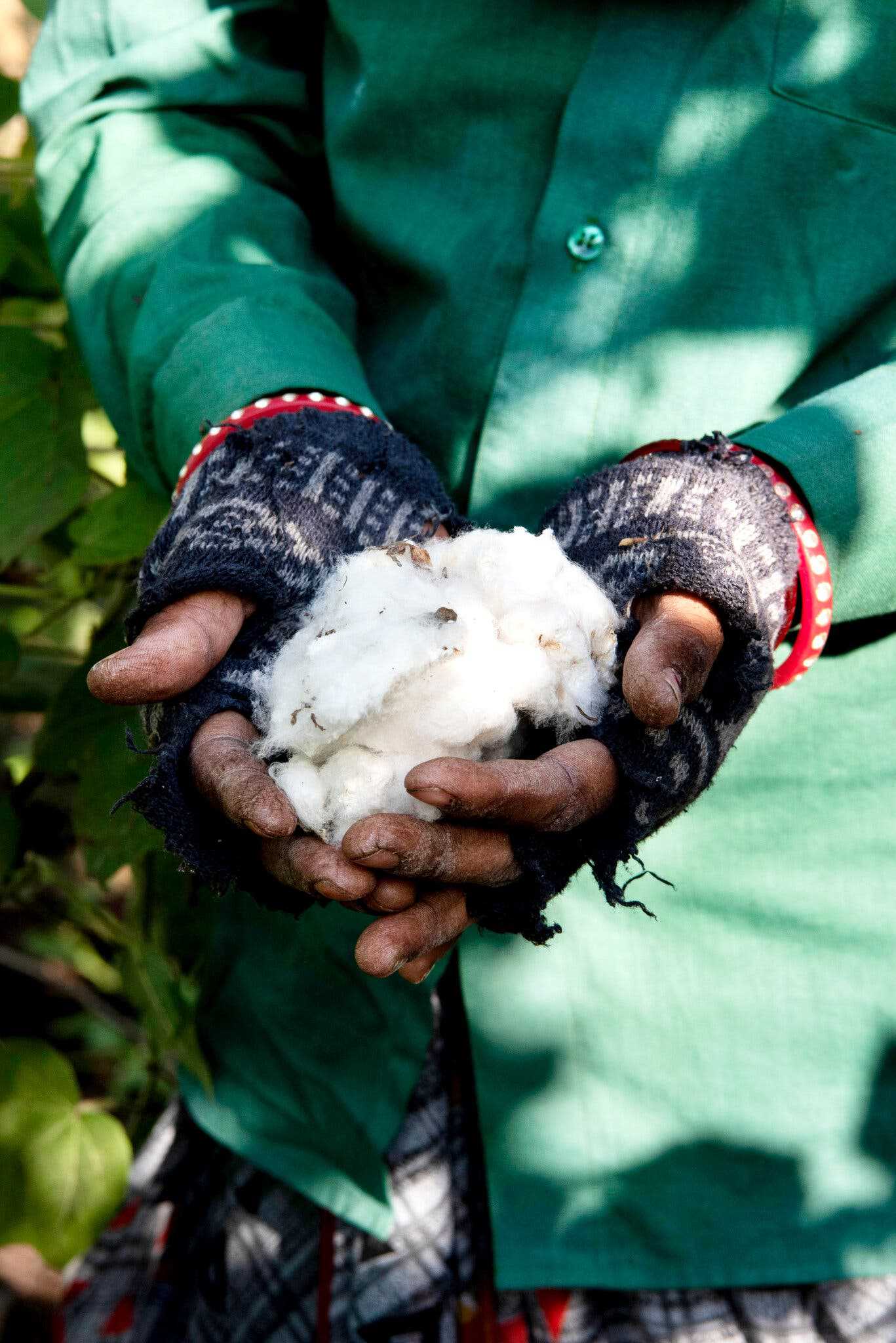That Organic Cotton T-Shirt May Not Be as Organic as You Think
14 February, 2022

The organic cotton movement in India appears to be booming, but much of this growth is fake, say those who source, process and grow the cotton.
Michael Kors retails its organic cotton and recycled polyester women’s zip-up hoodies for $25 more than its conventional cotton hoodies. Urban Outfitters sells organic sweatpants that are priced $46 more than an equivalent pair of conventional cotton sweatpants. And Tommy Hilfiger’s men’s organic cotton slim-fit T-shirt is $3 more than its conventional counterpart.
“This product contains independently certified organic cotton grown without chemical pesticides, chemical fertilizers and genetically modified seeds,” the product description reads. With the fashion industry trumpeting its sustainability commitments, those labels are both a means of value signaling and a lure to consumers willing to pay more to act better.
There’s only one problem: Much of the “organic cotton” that makes it to store shelves may not actually be organic at all.
The largest single producer of the world’s organic cotton supply is India, which accounts for half of the organic cotton sold globally, and where the organic cotton movement appears to be booming. According to Textile Exchange, a leading organic proponent, organic cotton production in India alone grew 48 percent in the last year, despite the pandemic.
However, much of this growth is fake, say Indians who source, process and grow organic cotton.
At the heart of the problem is an opaque certification system rife with opportunities for fraud. Consumers are assured of “organic” material by brands, which rely on official stamps of approval from external organizations. Those in turn rely on reports from opaque local inspection agencies that base their conclusions on a single planned yearly inspection (in the case of the facilities) or a few random visits (for farms).
In recent months, the credibility of these inspection agencies has been destroyed. In November, the European Union voted to no longer accept Indian organic exports certified by the main companies responsible for organic cotton: Control Union, EcoCert and OneCert. And in January, the international agency that provides accreditation to organic inspection agencies, IOAS, withdrew OneCert’s ability to inspect and certify cotton processors for these labels.
Crispin Argento, founder and managing director of the Sourcery, a small consulting firm that helps brands source organic cotton, has spent the past year hunting down organic cotton with his team only to see suppliers disappear when they start asking for proof of authenticity. He estimates between one half and four-fifths of what is being sold as organic cotton from India is not genuine. And almost the entire supply chain is implicated in what he calls a game of “smoke and mirrors.”
For at least a decade, in reports and at conferences convened by agitated large brands and the network of nongovernmental organizations that serve them, the organic cotton industry in India has been described as in “crisis,” but the problems have been kept largely out of the public eye.
N.G.O. workers worry exposure would lead to the total collapse of the industry and harm the small subset of farmers who are, in fact, growing organically. They also fear the wrath of Prime Minister Narendra Modi’s government, which has come down hard on those who dare to criticize the country. Others are profiting handsomely from the certification system.
When confronted with the allegations of fraud, many fashion brands and their sourcing partners that use Indian organic cotton admitted that the system wasn’t perfect but affirmed their commitment to organic cotton and said any problems that existed were located outside their own supply chains.
A spokeswoman for PVH, the owner of Tommy Hilfiger, wrote in an emailed statement that organic cotton was one of a variety of sustainable materials they had committed to sourcing and noted, “We know that rigorous standards and reliable verification processes are critical for sourcing sustainable materials.” Michael Kors and Urban Outfitters did not respond to emails requesting comment on their organic cotton sourcing.
At least one brand has decided it no longer wants to look the other way, however. Though organic cotton used to be a centerpiece of its commitments, the women’s wear brand Eileen Fisher now has a page on its website describing why it is moving away from certified organic cotton, the better to address what the brand calls “an uncomfortable fact.”
“The ‘organic’ cotton that’s sold each year far exceeds the amount that is actually grown,” it says.
Useful Links:
Source: www.nytimes.com
